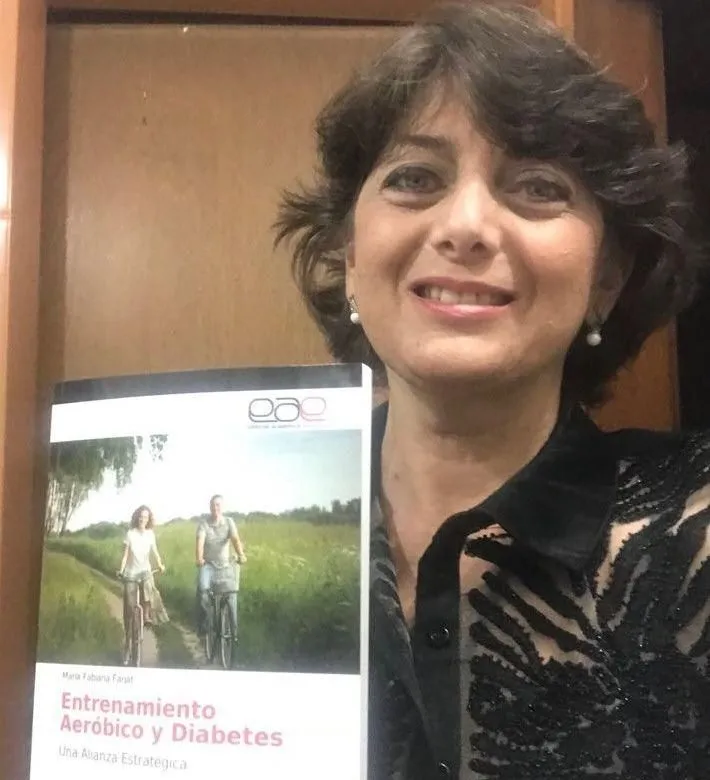A month and ten days after being transplanted from her left kidney, María Fabiana Farjat (49) will present her book "Aerobic training and diabetes.A strategic alliance ”.He will do it today, from 10 to 12, in the Libanese Syrian Union Hall (San Martín 673).There will provide free entry with the conference "The importance of physical activity to improve the health and quality of life of diabetics."
Farjat is a Physical Education professor of the Catholic University of Salta and a degree in Physical Education from the University of Catamarca.She is currently a Master's Theater in "Physical Activity and Quality of Life" at the National University of Tucumán, is president of the Federation of Professional Physical Education Entities of the Argentine Northwest (FEPEF NOA) and former president of the College of Physical Education Professionals of Physical Education ofSalta (COPEF).
The research published in this book earned him the prize for the youngest researcher at the 2011 National Congress held by the National Network of Physical Activity and Human Development (REDAF).At the initiative of this organization the thesis reached the Spanish academic publishing house, which offered Farjat the impression and editing, when she had almost closed
The possibility of spreading this material.
“I almost didn't understand anything because they contacted me by email.He had tried to publish it, but he had to invest a lot of money in an editor, a graphic designer and the impression in herself, ”he told El Tribuno.Thus, between several options and always through the Internet he achieved communication that made it possible to materialize the book.
Fabiana was diagnosed with type 1 diabetes at 12 years.“At that time, studies on diabetes were not so advanced, so one related it to limb amputation, loss of vision and dialysis.The doctor told you that physical activity helped, but I did not prescribe what kind of exercise you should do, ”he defined.However, after doing their swimming training, he could notice that his glycemia levels yielded.
“At that time there were no means to measure blood glucose or different times daily, except to resort to laboratories.In addition, there was also no analysis that measures the patient's glucose average in the last two months, which is so important for diabetics to improve their quality of life, ”he explained.
This experience based on experience led her to define her vocation, then to enter the studies on diabetes and permanently to contribute to the community and family of people with diabetes.With the help of technology and medical development, today the focus for the treatment of a patient with diabetes is put in physical exercise, in addition to nutrition and blood glucose controls.
“We were not trained or physical education teachers to know what kind of training and what intensity the activity should have to be beneficial for the diabetic and go if it is because it prevents chronic complications of diabetes, of which the touglesThey are diabetic retinopathy, nephropathy and neuropathy, ”he said.
Having gone through a double kidney and pancreas transplant in 2013, which resulted in the rejection of the first organ, and another last February, another responsibility that Farjat took for itself is the creation of consciousness in potential organ donors.“I want to work with institutions to change the northern mentality, because here the cultural issue intervenes a lot in which people want to be a donor.They fear that they are killed in hospitals to get the organs, I don't know.There is a lack of education.If that fears have the big ones, children and young people could better understand the message.The rate ofablation in Salta, ”he warned.
Finally, he invited his conference to physical education teachers, people with diabetes and the public interested in the subject.


